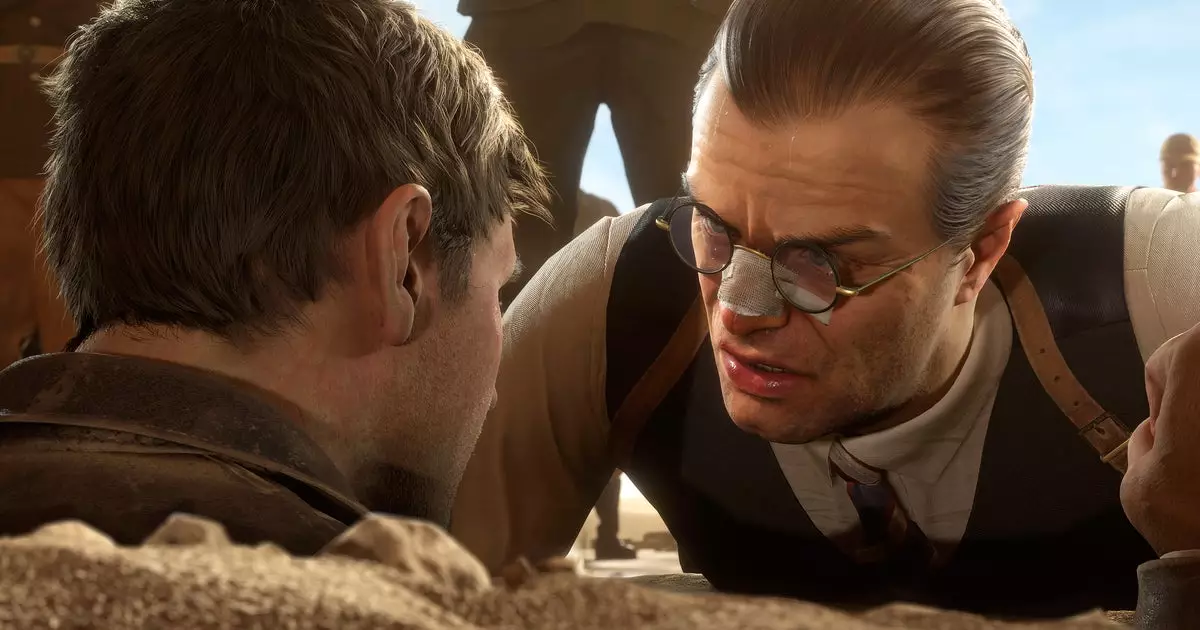The discussions surrounding the blending of entertainment with significant historical themes have never been more relevant, particularly as they play out in popular media such as video games. One franchise that embodies this precarious balance is Indiana Jones, a character whose disdain for the Nazi regime is unmistakable. Yet the fine line that separates escapist fantasy from problematic portrayals is often contested in the gaming community. The upcoming title “Indiana Jones and the Great Circle” attempts to navigate this terrain, presenting a fictional narrative inspired by real events involving the Nazi Party during World War II. However, the inherent challenges in addressing such a loaded subject matter raise crucial questions about representation, accountability, and the impact of interactive media.
At its core, the Indiana Jones franchise, through its swashbuckling adventure themes, often skirts the boundary between historical fiction and outright glorification of action against oppressive regimes. The iconic line from “Raiders of the Lost Ark,” “Nazis — I hate these guys!” embodies a clear stance against the atrocities committed by Nazi Germany. Yet, this leads to a paradox; how can a video game that revolves around fighting historical villains maintain respect for the actual suffering inflicted by these regimes, while still allowing players to engage in the escapist fantasy of heroic combat?
The developers at MachineGames recognized this duality in the upcoming “Great Circle” installment. It is notable that they have included a disclaimer to clarify the game’s intent, stating explicitly that it does not seek to glorify or endorse the ideologies of the Nazi Party. This legal precaution indicates an awareness of the responsibilities that come with portraying sensitive historical content in a medium often dominated by escapist narratives. However, the effectiveness of such disclaimers remains debatable. While legal jargon may shield the developers from backlash, it does little to mitigate the potential for misinterpretation by audiences, especially those with extremist leanings who might misuse imagery to convey their own messages.
The inclusion of disclaimers points to an increasing necessity for sensitivity on the part of game developers regarding how historical narratives are presented in modern games. Yet it also raises the question of whether developers can truly control the narrative once a game is released. With a robust modding community and the capacity for players to share screenshots and video content rapidly, there’s a risk that the portrayal of violent resistance against an oppressive regime could inadvertently be co-opted into a diluted or glorified version of history.
The disclaimer focused on the distinctions between reality and fiction serves an important purpose, yet it may not adequately address the risk of misinterpretation. For instance, if a gamer from a far-right perspective captures a particularly satisfying moment of combat against Nazi symbolism in “Great Circle,” it could lead to dangerous narratives being proliferated online. This scenario underscores the responsibility that lies with developers to tread carefully in creating a dynamic that allows for engagement without endorsing harmful sentiments.
As video games push the boundaries of storytelling and leisure, they also carry significant implications for historical representation. The fine line between providing a thrilling interactive experience and inadvertently perpetuating harmful ideologies should compel developers to engage in thoughtful reflection regarding their creative decisions. While “Indiana Jones and the Great Circle” appears to embrace a clear anti-Nazi sentiment, the game must also consider how its portrayal of violence against historically significant oppressors is framed within a larger context of respect for actual historical events.
The anticipation for games like “Indiana Jones and the Great Circle” brings forth a critical dialogue about the dual nature of escapism and historical accuracy. While engaging with fantastical narratives, it is paramount for developers and players alike to remain mindful of how histories are interpreted and represented in media. Ensuring that entertainment does not overshadow education and respect for real-world events is a challenge that will continue to shape the conversation around interactive storytelling in future releases.

